Search
Search Results

Definition
Timbuktu - West Africa's Great Trading Centre
Timbuktu (Timbuctoo) is a city in Mali, West Africa which was an important trade centre of the Mali Empire which flourished between the 13th and 15th centuries. The city, founded c. 1100, gained wealth from access to and control of the trade...

Definition
Ancient Persian Art and Architecture
Persian art and architecture in the present day is associated with the nation of Iran and usually designated as beginning with the Achaemenid Empire (c. 550-330 BCE) but has an even longer history with its origins dating back to before the...
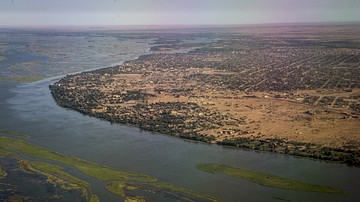
Definition
Songhai Empire
The Songhai Empire (aka Songhay, c. 1460 - c. 1591) covered what is today southern Mauritania and Mali. It replaced the Mali Empire (1240-1645) as the most important state in West Africa. Originating as a smaller kingdom along the eastern...

Definition
Umar
Umar ibn al-Khattab (r. 634-644 CE) was the second caliph of the Rashidun Caliphate (632-661 CE, as the first four caliphs are referred to by the Sunni Muslims). He was an early convert of Islam and one of the close companions of the Islamic...

Article
The Spread of Islam in Ancient Africa
Following the conquest of North Africa by Muslim Arabs in the 7th century CE, Islam spread throughout West Africa via merchants, traders, scholars, and missionaries, that is largely through peaceful means whereby African rulers either tolerated...
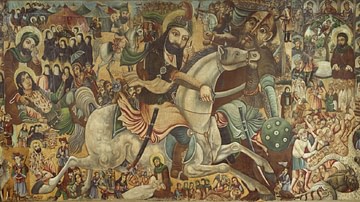
Article
Battle of Karbala
The Battle of Karbala (10 October 680 CE) was a small-scaled military engagement, fought near the river Euphrates, in modern-day Iraq, which saw the massacre of heavily outnumbered Alid troops under the command of Husayn ibn Ali (l. 626-680...
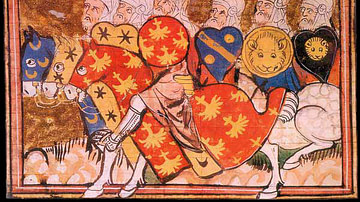
Article
Saladin & the Unification of the Muslim Front: 1169-1187 CE
Saladin (c. 1137 – 1193 CE), the Muslim ruler who crushed the mighty Crusader army at the Horns of Hattin (1187 CE) and re-took Jerusalem after 88 years of Crusader control, was born in a world where the disunity of the Muslims had allowed...
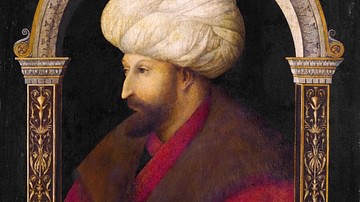
Definition
Mehmed II
Mehmed II (1432-1481 CE), also known as Mehmed the Conqueror, was the seventh and among the greatest sultans of the Ottoman Empire. His conquests consolidated Ottoman rule in Anatolia and the Balkans, and he most famously triumphed in conquering...

Definition
Robert Guiscard
Robert Guiscard (1015-1085) was a Norman knight best known for conquering much of Southern Italy and Sicily during the 11th century. His many exploits include the expulsion of the Byzantines from Italy, support of a reformist papacy, and...
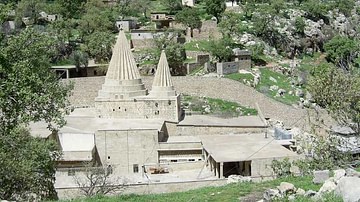
Definition
Yazidism
Yazidism is a syncretic, monotheistic religion practiced by the Yazidis, an ethnoreligious group which resides primarily in northern Iraq, northern Syria, and southeastern Turkey. Yazidism is considered by its adherents to be the oldest religion...